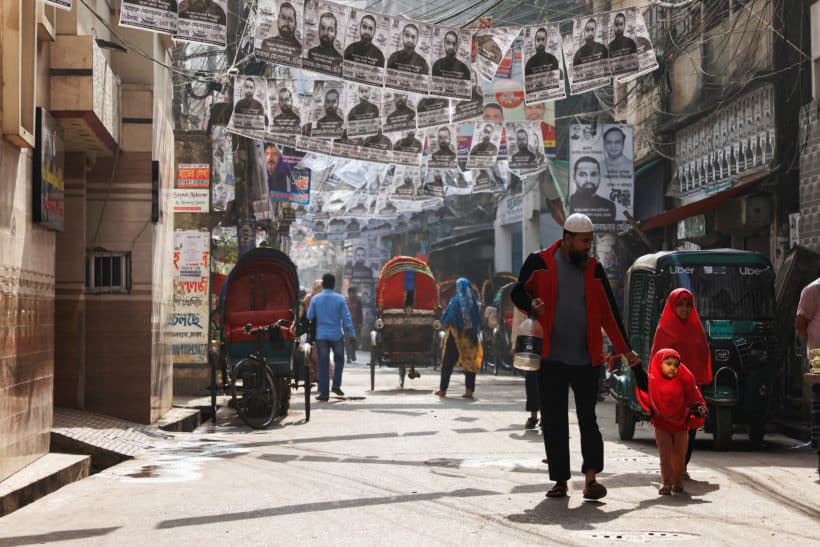
LONDON, (Reuters) – Emerging markets are gearing up for their biggest election year in decades, with investors focused on fiscal discipline and populist shifts that could stir markets and blur the outlook for some key economies.
Countries home to more than half the world’s population and accounting for more than 60% of global economic output go to the polls in 2024.
The calendar is bookended by votes in Taiwan in January – a high-stakes geopolitical event – and in sovereign defaulter Ghana in December, as the country strives to emerge from a debt crunch.
“This is an election year like we have never seen before. It really is an extraordinary year,” said David Lubin, associate fellow at think tank Chatham House and Citi’s former head of emerging market economics.
“Recent elections in Argentina and Poland have reminded us that elections do produce surprises,” Lubin added.
The elections frenzy comes against a backdrop of sharply higher global borrowing rates – piling pressure on more fragile economies even though the prospect of interest rate cuts from the world’s big central banks is firmly on the horizon.
For investors, elections divide into three categories: Those where the outcome is rather obvious, such as Russia or Venezuela; those where it seems clear but the ballot is contested, for example India, Mexico or Indonesia; and those where there is genuine uncertainty, like in South Africa.
The 2023 polls in Argentina and Poland also served as reminders that governments due to face their electorates are more often than not prone to loosening the purse strings – a trend that can leave those who take over struggling to roll back the handouts.
Even when Argentina’s previous government ramped up spending between the first and second round of their vote, radical Javier Milei swept to power and embarked on a radical reform programme. In Poland, the surprise election win of the liberal, pro-EU Donald Tusk got the thumbs up from investors.
OPEN WALLETS
Fiscal discipline is seen as key, especially following a series of external shocks ranging from COVID-19 to Russia’s war in Ukraine and a rise in global yields that has highlighted the need for countries to keep spending tightly controlled, said Yvette Babb, a portfolio manager at asset manager William Blair.
“There is very limited margin for populist – often times meaning ‘expensive’ – policy stances across emerging markets,” said Babb. “In many of our markets, elections victories have historically been tied to fiscal stances and populist policy. For this to continue it would be very controversial.”
Morgan Stanley flagged fiscal risks from pre-election spending as a key driver this year for South Africa, Romania, Russia, El Salvador, Dominican Republic and Uruguay.
The ramifications could be felt well beyond this year. The Institute of International Finance (IIF) said the “tsunami” of 2024 elections could add to an already record glut of global debt estimated to have hit $310 trillion by the end of 2023.
“A sudden increase in government spending during this global elections cycle could further elevate interest (payments) for many countries,” warned Emre Tiftik, Director of Sustainable Research at the IIF, adding that this could create further volatility in markets.
Some fear this could spur a resurgence of so-called bond vigilantes, investors who punish profligate governments by selling their bonds, driving yields higher.
CURRENCY SHIVERS
Analysts at Citi, who also warn that the looming emerging markets election cycle might see “less policy discipline than investors would like” – have studied the short-term effects markets might have to contend with.
While some votes are bound to generate more volatility than others, currency markets are often the first to feel election nerves, especially in Latin America, according to Citi strategist Dirk Willer.
He points to a reliable pattern for Mexico’s peso that sees the currency weakening in the lead-up to the vote only to strengthen on the emergence of some kind of certainty once the election result seems reasonably established. Latin America’s second-largest economy is scheduled to hold elections on June 2 with the incumbent party’s candidate enjoying a healthy lead in opinion polls.
Evidence of the heavy election cycle shaping investment flows to equities already emerged in 2023, said Karim Chedid, head of EMEA iShares investment strategy at BlackRock.
“We are seeing an evolution of the EM trade from broad to more granular which I am keeping on my radar in 2024 because of the heavy election calendar,” said Chedid, singling out Mexico but also India.
The world’s most populous country is set to hold elections in April or May, with self-styled strong man Narendra Modi expected to win a third term as prime minister.
(Reporting by Karin Strohecker, additional reporting by Libby George and Jorgelina do Rosario, graphics by Sumanta Sen and Marc Jones, Editing by Hugh Lawson)

